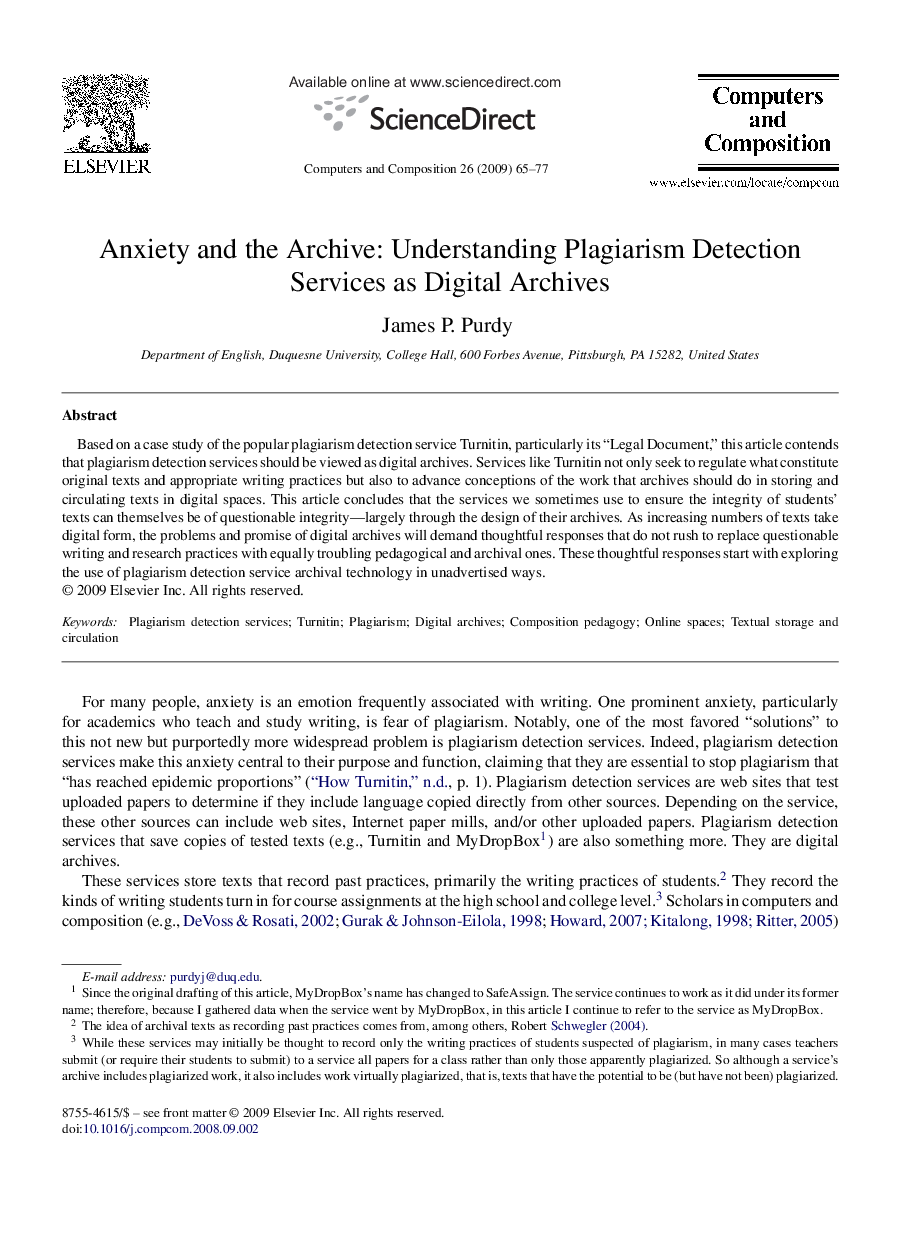| Article ID | Journal | Published Year | Pages | File Type |
|---|---|---|---|---|
| 347985 | Computers and Composition | 2009 | 13 Pages |
Based on a case study of the popular plagiarism detection service Turnitin, particularly its “Legal Document,” this article contends that plagiarism detection services should be viewed as digital archives. Services like Turnitin not only seek to regulate what constitute original texts and appropriate writing practices but also to advance conceptions of the work that archives should do in storing and circulating texts in digital spaces. This article concludes that the services we sometimes use to ensure the integrity of students’ texts can themselves be of questionable integrity—largely through the design of their archives. As increasing numbers of texts take digital form, the problems and promise of digital archives will demand thoughtful responses that do not rush to replace questionable writing and research practices with equally troubling pedagogical and archival ones. These thoughtful responses start with exploring the use of plagiarism detection service archival technology in unadvertised ways.
